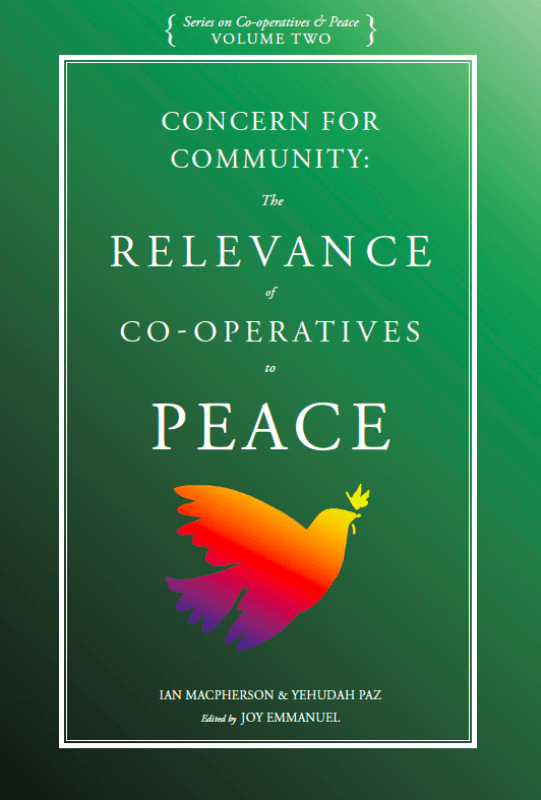Concern for Community: The Relevance of Co-operatives to Peace

A new e-book on the history, theory, and practice of co-operatives and peace by the late Dr Ian MacPherson and the late Dr Yehudah Paz was published on December 10, 2015.
Along with several other joint initiatives that focused on co-operatives and peace, Dr MacPherson and Dr Paz were working on this publication at the time of their unfortunate passings in November 2013. Concern for Community: the Relevance of Co-operatives to Peace distills the authors’ convictions on how peacebuilding is core to the co-operative model of enterprise.
With a review of the historical record, including development of the 1995 Co-operative Identity Statement, the authors illustrate how peace has been a significant theme in the life of the international co-operative movement. Providing both an in-depth examination of how co-operatives empower their members to address inequalities in local communities and a description of the role co-ops can play in building cross-conflict relationships in war-torn regions, the authors demonstrate the relevance of co-operatives to peace for addressing an array of social tensions. They explain how the co-operative movement has developed a set of values and practices that build on the seventh principle, a concern for community, and form a natural bridge to building a more just, peaceful world.
“Peacebuilding happens in communities not on battlefields,” claimed Dr MacPherson. “And it is in this context that co-operatives can make their greatest contribution to building a more peaceful world.”
“Peacemaking is central to the growth of the co-operative movement,” asserted Dr Yehudah Paz, “and co-operatives are relevant to matters of peacemaking and conflict resolution at the level of neighbour-to-neighbour within and across communities, regions, and nations.”
The arguments made by the authors are complimented by nine case studies that illustrate how co-operatives embody practices of peacebuilding from employment creation for marginalized groups of people and establishing savings plans in impoverished communities; to addressing discriminatory practices around race, ethnicity, gender, and religion; to engaging in sensitive practices of peacebuilding in communities affected by outright violent conflict.
By Ian MacPherson and Yehudah Paz
